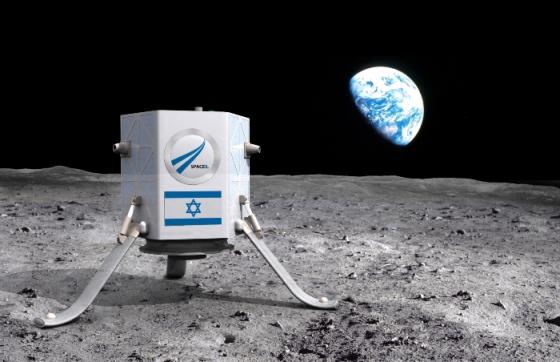Background: Israelis and Space
Since the 1960s, Israelis have actively engaged in researching and exploring space, initially focusing on academic research. With time, efforts shifted to generate an Israeli space industry, piggybacking on Israel’s technological 
In 1988, Israel joined seven other nations with space launch and spacecraft capabilities when it launched its first satellite, Ofeq-1. Many more satellites have since been launched bringing Israel’s total to thirteen satellites, developing an international reputation through its substantial achievements.
The Potential of Space
The space industry as a whole, including Israel’s, has greatly contributed to the global economy, and also provides political and strategic advantages to involved nations. More specifically in the case of Israel, satellite and space technology plays a significant role in its communication and miniaturization innovations. Space capabilities have also played a role in ensuring Israel’s military and security advantages, which in turn lead to political advantages. Whether in gathering of valuable information, or the establishment of missile defense systems, space capabilities prove vastly important. Companies, like Israel Aerospace Industries (or IAI), are committed to the production and invention of cutting-edge defense and commercial aerospace technologies. For these reasons and others, Israel and the Israel Space Agency strive to maintain and enhance Israel’s involvement in space exploration and research and the fruits that result from this labor.
SpaceIL: The Mission

In this challenge, $20 million will be awarded to the first team that successfully performs the following three tasks:
- successfully land an unmanned spacecraft on the moon’s surface
- travel 500 meters along the surface of the moon
- send HD video and images to Earth.
But, SpaceIL’s mission carries on past the short-term goal of winning the competition, as it looks towards the long-term horizon of inspiring the next generation of engineers in both Israel and the world at large. The nonprofit would use the prize money from the competition to further scientific education in Israel. Even before this goal is realized, SpaceIL has demonstrated its commitment by making presentations in classrooms around the world.
SpaceIL: The Technology
In pursuing its extraterrestrial objectives, SpaceIL is utilizing the newest technologies in order to build a “dishwasher” sized spacecraft, much tinier than the colossus that was Apollo 11, which carried the first man to the moon back in the ‘60s. The spacecraft will use new SLAM (Simultaneous Localization and Mapping) technology, allowing it to self-navigate the long journey to the moon without the use of GPS, which is somewhat ironically satellite dependent. In order to accomplish the second objective, the 500-meter moon journey, SpaceIL has proposed the idea of a space jump in place of using a rover. The spacecraft will take off from the initial landing point and land 500 meters away, all within the regulations and stipulations of the competition.
Notably, the cost of production of the SpaceIL spacecraft proves relatively tiny when compared to the billion-dollar programs of the past, making space exploration accessible to many other smaller groups in the future.
Through nonprofit start-ups like SpaceIL, Israel continues to look to the stars in order to inspire and educate its future agents of innovation and economic development. The sky has ceased to be the limit as Israel seeks to expand a knowledge-based global economy well past the physical confines of its terrestrial body.
Join us for an exclusive interview with SpaceIL!
We are privileged to be hosting an online interview with SpaceIL co-founder Yariv Bash, on Tuesday, June 10th at 12pm EST.
Click here to find out more information and reserve your spot on the call.
[xyz-ihs snippet=”JonathanEllison”]







